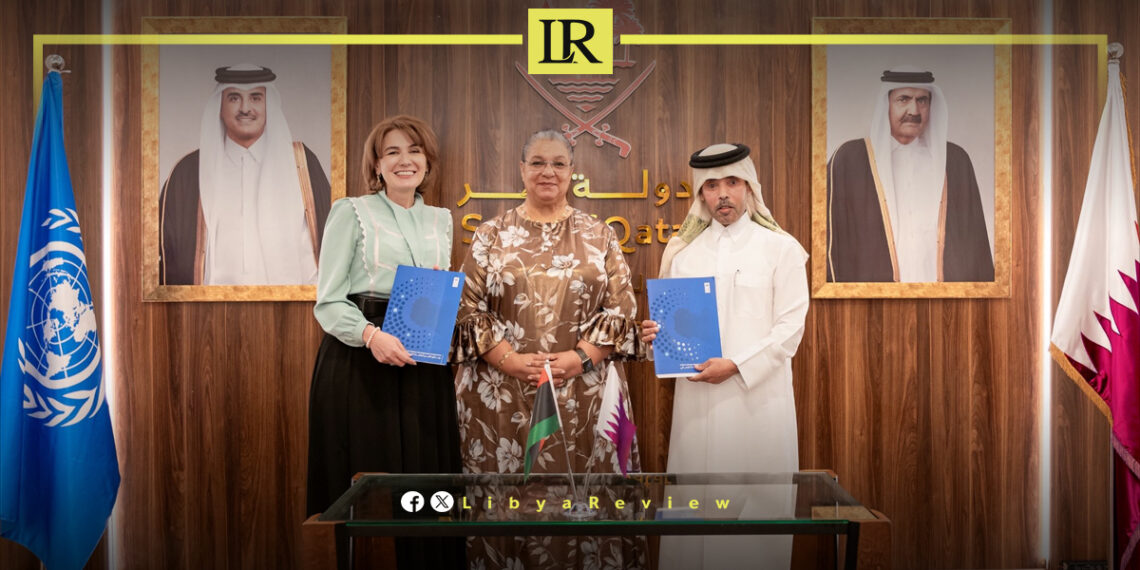The United Nations Support Mission in Libya (UNSMIL) has welcomed a new funding agreement from Qatar to support political dialogue and strengthen civil participation across the country.
The initiative was endorsed by the UN Secretary-General’s Special Representative for Libya, Hanna Serwaa Tetteh, who emphasized that the contribution will reinforce ongoing efforts to advance a unified, inclusive, and nationally owned political process.
UNSMIL said in a statement that the financing agreement, signed between the Qatari government and the United Nations Development Programme, is designed to enhance the UN project focused on supporting political dialogue and expanding avenues for civic engagement. The mission explained that the support will directly assist the UN in implementing the roadmap that Tetteh presented to the UN Security Council on 21 August, which outlines steps aimed at helping Libya exit its prolonged transitional phase.
According to the mission, the project will work to broaden civil participation in Libya by encouraging dialogue among political actors, civil society organizations, youth groups, women’s networks, and local community leaders.
The goal is to create an environment where Libyans can engage more actively in shaping their political future and contribute to a stable and inclusive national framework.
Tetteh stressed that expanding the role of civil society and community stakeholders is essential for building consensus around a credible political path and for ensuring that future agreements reflect the will of the Libyan people. She reiterated UNSMIL’s commitment to supporting a Libyan-led process and emphasized that political progress requires cooperation among national institutions, communities, and international partners.
The mission noted that Qatar’s financial support complements the UNDP’s existing governance and peacebuilding programs, which aim to strengthen local institutions and increase engagement between authorities and citizens. UNSMIL expressed appreciation for Qatar’s contribution and encouraged other international partners to continue supporting efforts that promote political stability, dialogue, and reconciliation in Libya.
The mission concluded that sustainable peace in Libya depends on broad participation, inclusive dialogue, and unified national commitment, and that international support remains essential to achieving these goals.


